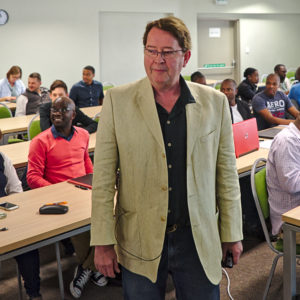16 May 2018
By Marina Joubert
“Academic research is at a crossroads.” This is how Dr Jack Spaapen, a senior policy advisor at the Royal Netherlands Academy of Arts and Sciences, interprets the opposing demands made on today’s universities and researchers. “Researchers are squeezed between the non-negotiable demands for international excellence on the one hand, and an increasing demand for societal relevance, impact and engagement on the other.”
Research funders increasingly look for societal impact and public engagement and they are changing their policies and funding instruments to encourage scientists to escape from the proverbial ivory tower, Dr Spaapen explained. While there are many ideas and much goodwill for public engagement with science, it is not always easy to find funding for it, he added. “Of course, we have to connect with societal problems, but, with all these new demands on research and research funding, fundamental researchers fear that there will be less and less room for so-called blue sky research.”
The meaningful evaluation of societal engagement with science is a further complex challenge. “Our current methods for measuring research outputs and impact – classical tools in bibliometrics and scientometrics – are not fit to measure societal impact of research,” Dr Spaapen explained. “Therefore, we have tried to develop a more holistic approach using a new kind of evaluation architecture that takes societal quality and relevance into account alongside scientific quality.” The idea is to help researchers find ways to capture their contributions to societal engagement more meaningfully by focussing on the process of research and narrative tools, he explained. Go to www.qrih.nl/en to explore.
“We have to connect scientific goals with societal goals”, says Dr Jack Spaapen, a guest speaker at a science engagement seminar at CREST, Stellenbosch University.


